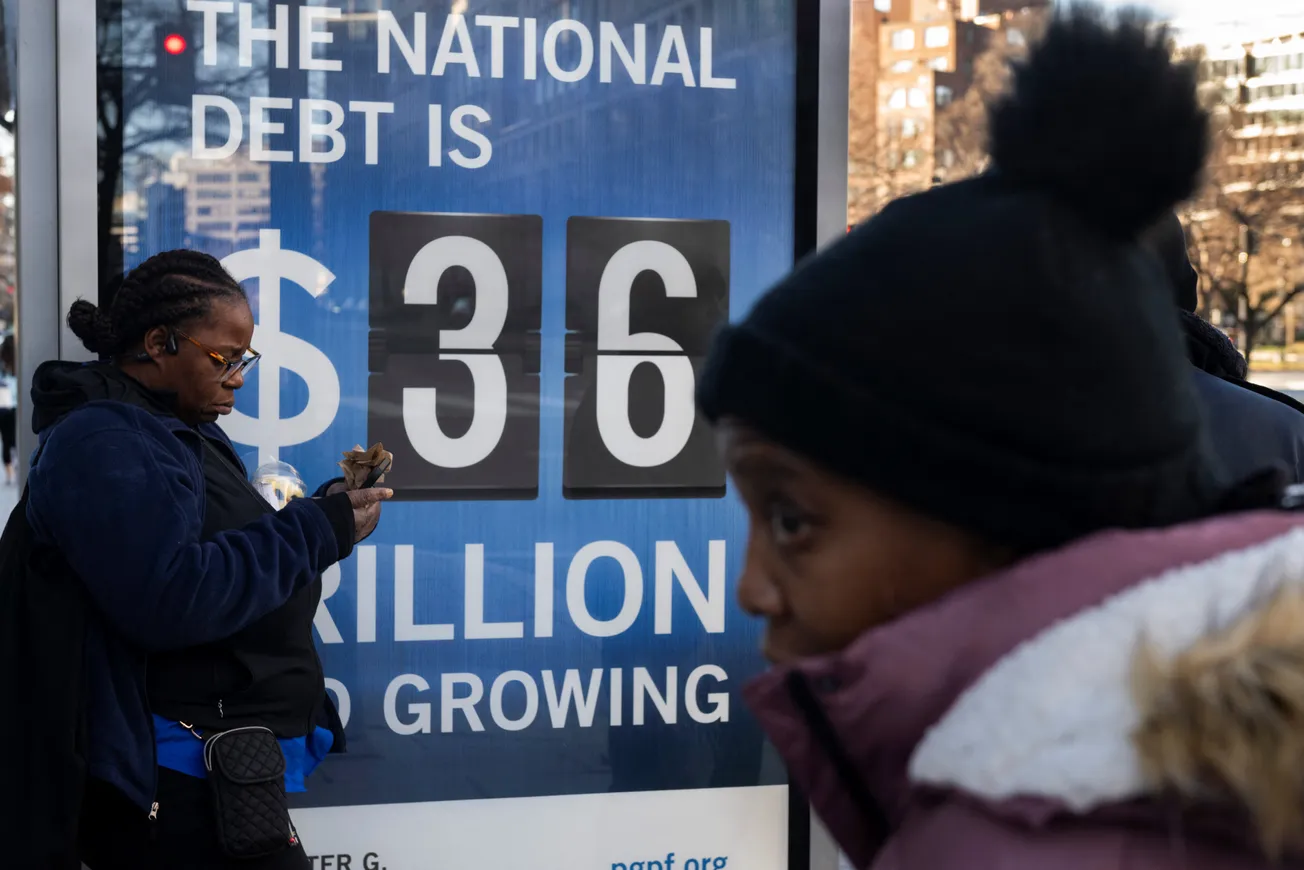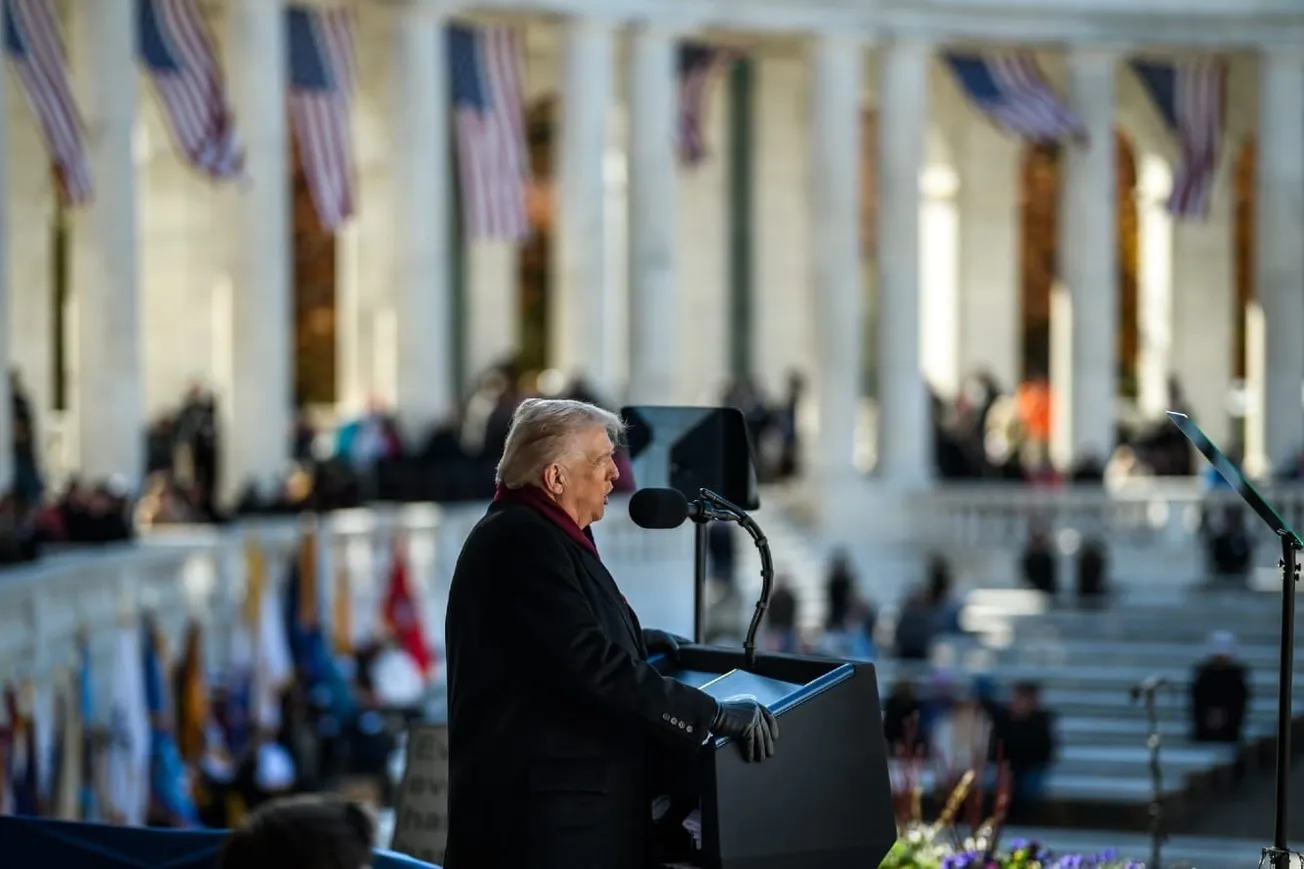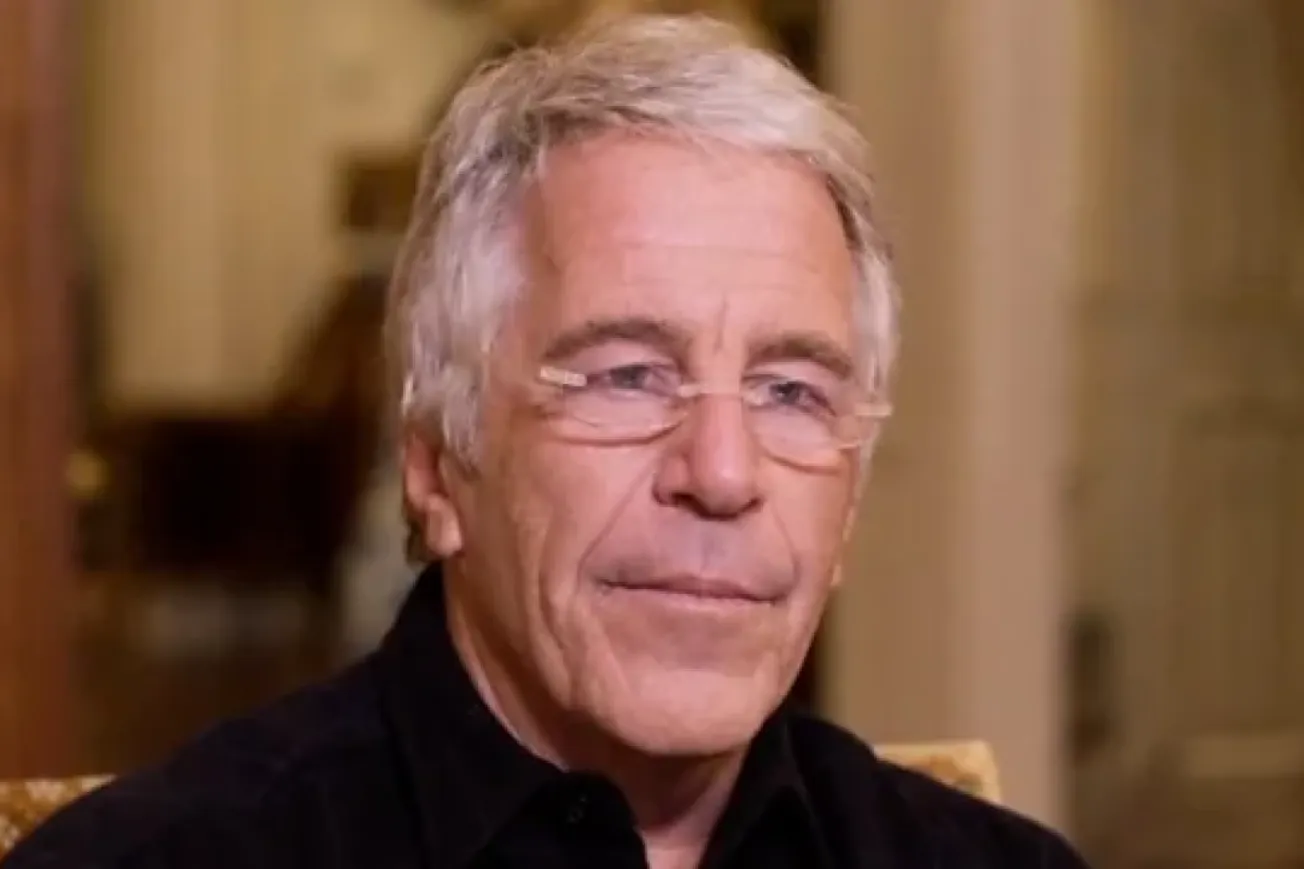The U.S. national debt has reached new records in recent years—USD 36 trillion. To put those numbers in perspective, the government has borrowed $107,225 per person or $273,225 per household.
Several factors have contributed to the astronomical debt. The Iraq war and the two-decade-long war in Afghanistan drained America's coffers. The 2008 financial crisis and the Covid-19 pandemic necessitated sweeping stimulus measures costing the exchequer trillions. Tax cuts, spending on social security programs, and the cost of servicing the current debt all add to the total national debt.
Deficit spending--government expenditures exceed revenues collected during a fiscal year-- is cited as one of the primary causes of rising debt. Washington has mainly operated on a deficit since WWII. For instance, America's last surplus budget was in 2001. The situation is so dire that without a drastic course correction, another trillion dollars in debt would be added approximately every 156 days.
The U.S. national debt has become a hot topic and matter of concern among Americans. TIPP Poll conducted a nationwide survey for the League of American Workers soon after Trump won the elections and asked over 1550 citizens what the new President should do to reduce the nation's debt.
Overall, more than half were clear that the new administration should focus on growing the economy. 48% were convinced that cutting government spending was the way to go, and more than a quarter, 32%, opined that the President should opt for a balanced budget.
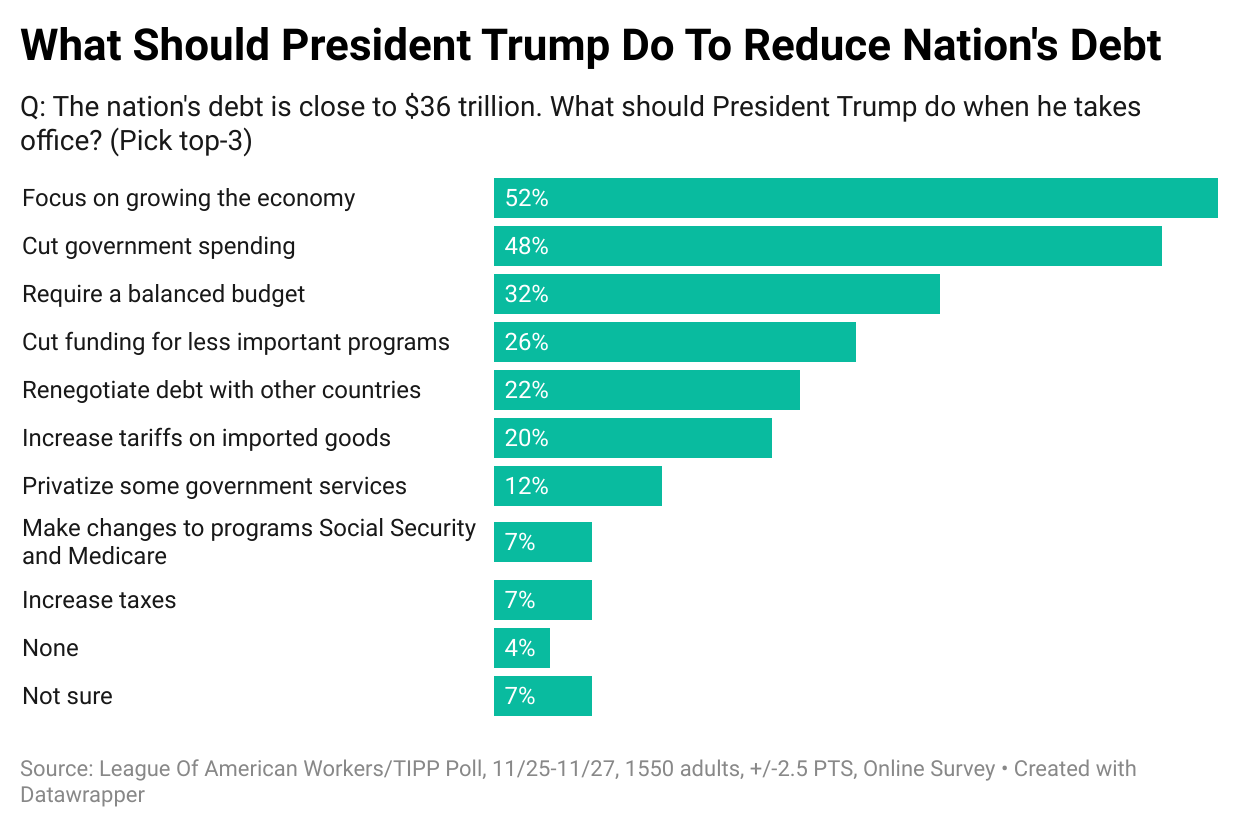
A quarter, 26%, favored cutting off less critical programs, while 22% each wanted the President to renegotiate debt with other countries, and a fifth supported increased tariffs on imported goods.
Of course, party affiliations play a significant role in which method found favor with the survey participants.
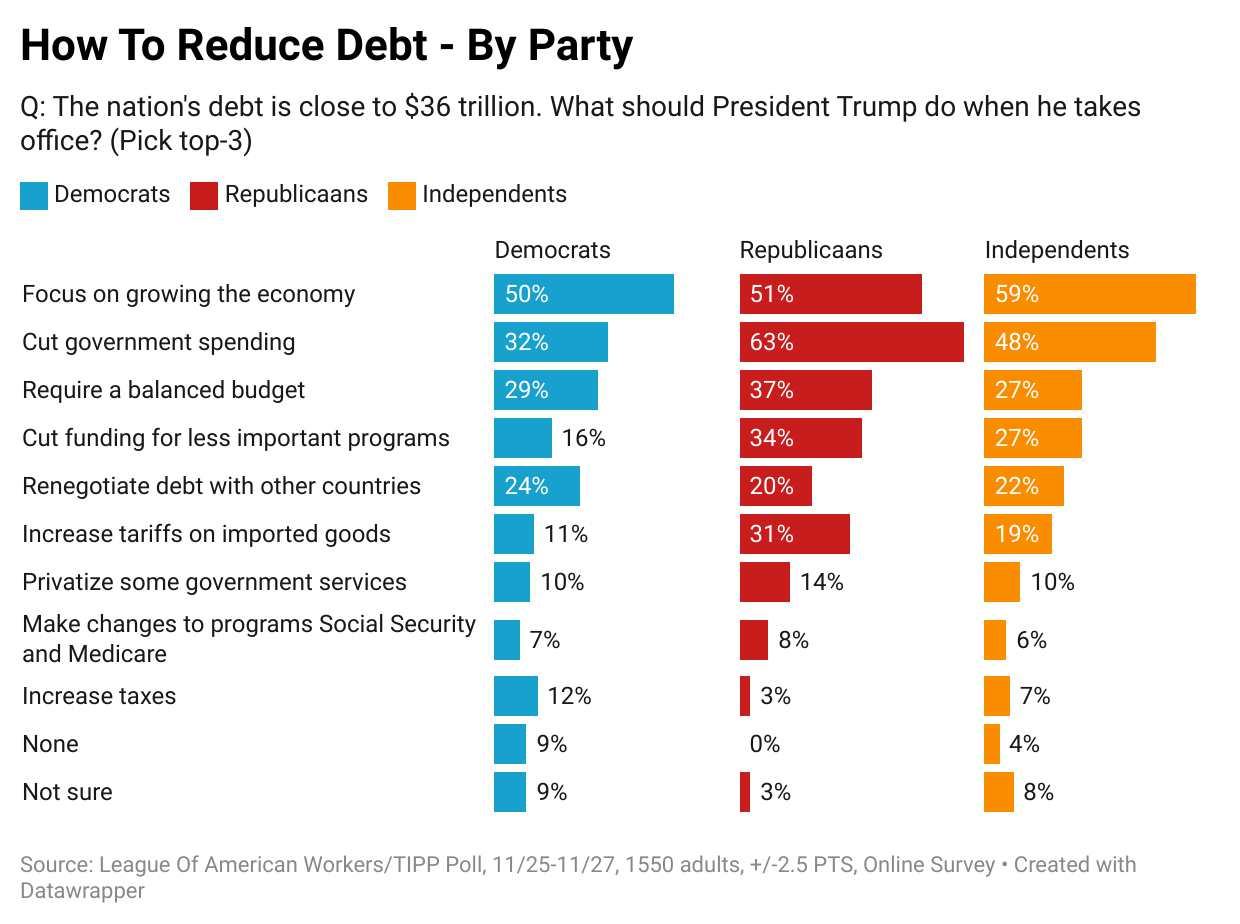
While ‘focus on growing the economy’ was the top pick among Democrats (50%) and independents (59%), it was the second choice for Republicans (51%).
Instead, most Republicans, 63%, wanted a cut in government spending. Though 48% of independents supported the action, only 32% of Democrats did. Since taking office, the President has been focused on trimming the excess. His plans to significantly downsize the civil service and slash government spending could save the administration millions.
Trump has promised to right the trade and tariff imbalance that has put American goods and manufacturing at a disadvantage. He has initiated steep tariffs on major trade partners – Canada, Mexico, and China. While the strategy could reap rewards in the long term, the shake-up could drive up costs for everything from fuel to clothes in the immediate future. President Trump’s plans to impose tariffs on imported goods do not have broad-spectrum support. Less than a third, 31%, of Republicans are in favor, while only 19% of independents and 11% of Democrats agree.
Radical and sweeping measures are necessary to steer the country away from the path of self-destruction. Continued deficit spending could further hinder economic growth, drive down the value of the dollar, exacerbate inflationary pressures, and hamper fiscal flexibility.
President Trump’s measures may be unorthodox, but they are timely and necessary. A clear focus on cost-cutting and debt reduction is the need of the hour.
TIPP Picks
Selected articles from tippinsights.com And More
Trump 2.0
Trump Agenda On Track With Swift Cabinet Confirmations—Jacob Adams, The Daily Signal
Trump Is Right: Rogue Consumer Financial Protection Bureau Must Go—Carrie Sheffield, The Daily Signal
‘Mini-Me’ Executive Branch Agencies Run Amok. Not for Much Longer, If Trump Has His Way—Hans von Spakovsky, The Daily Signal
The Left’s Sue-Everything-That-Moves Strategy May End Up Delivering Trump Ultimate Victory—Katelynn Richardson, DCNF
This Could Curtail States From Suing Over Trump’s Executive Orders—Jack Fitzhenry, The Daily Signal
‘President Trump Saved My Life’: Pardoned Pro-Lifers Reflect On Incarceration, Newfound Freedom—Elizabeth Troutman Mitchell, The Daily Signal
‘The Realignment’: GOP Sen. Hawley To Introduce Pro-Union Legislation—Philip Wegmann, The Daily Signal
‘There’s A Lot of Reasons’: First-Time Trump Voter Explains Why 2024 Was Her Breaking Point—Jason Cohen, DCNF
World Affairs
Energy Secretary Chris Wright Implores Europeans To ‘Return To Sobriety’ On Climate, Energy—Bradley Devlin, The Daily Signal
Foreign Aid Isn’t—Joel Salatin, Ron Paul Institute for Peace and Prosperity
USAID’s Troubling Ties To The Woke Nonprofits That Called The Shots In The Biden Administration—Tyler O'Neil, The Daily Signal
Economics
Numerous Reports Show Immigration Crisis Sapping US Economy—S.A. McCarthy, The Daily Signal
Osama bin Laden’s Secret Weapon: Economic Literacy—Jorge Besada, Mises Wire
The Fed Has Stopped Pretending That Price Inflation Is Going Away—Ryan McMaken, Mises Wire
The Cost Of Freedom: Confronting Military-Industrial Profiteering And Restoring Fiscal Integrity To Preserve Our Republic—Dennis J. Kucinich, Ron Paul Institute for Peace and Prosperity
Politics
‘Just the Beginning’: Californians Fight Back Against Leftist Gender Ideology—Moira Gleason, The Daily Signal
Isn’t 46 Years Of Failure Enough? Time To Kill The Education Dept.—Editorial Board, Issues & Insights
Eric Adams Has A Long History Of Failing To Deliver On Illegal Immigration Promises—Jason Hopkins, DCNF
Strategist Who Ran Kamala Campaign To Historic Loss Appears To Land On His Feet With Foreign Lobbying Gig—Reagan Reese, DCNF
‘Why Is It One Rule For Democrats?’: Piers Morgan Shuts Down Liberal Streamers Upset Over Eliminating Gov’t Waste—Hailey Gomez, DCNF
Vivek Ramaswamy’s Political Future Appears To Take Shape Ahead Of ‘Big Announcement’ Days Away—John Oyewale, DCNF

